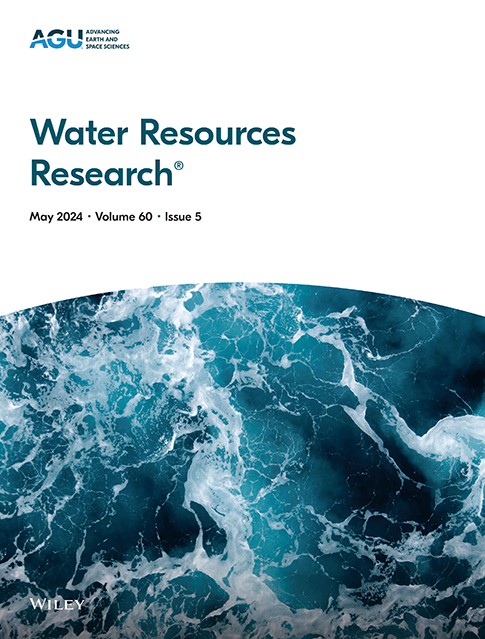评估潜在的地下水储存能力,促进后大都市区的可持续地下水管理
IF 4.6
1区 地球科学
Q2 ENVIRONMENTAL SCIENCES
引用次数: 0
摘要
由于城市发展对淡水的需求不断增长,世界上许多大城市都不可避免地出现了过度抽取地下水的现象。为了缓解城市化过程中的土地沉降问题,人们通过各种法规来控制地下水的使用。本研究探讨了后沉降阶段的过渡,尤其是在大都市地区,如何适应性地调整沉降预防策略,以实现有效的地下水管理。以台北盆地为例,历史数据显示,在早期城市发展过程中,台北盆地发生了超过 2 米的显著沉降,几十年来,沉降危害已基本缓解。然而,地下水位的上升对工程挖掘的稳定性构成了风险。在这项研究中,29 幅 X 波段 Cosmo-Skymed 星座(CSK)图像与持久散射体 InSAR(PSInSAR/PSI)技术一起被用来监测大众快速交通系统建设期间的地表位移。地下水位的相关性有助于确定异质水文地质环境,并评估潜在的地下水容量。PSI 时间序列显示,约 2 厘米的可回收土地位移与承压含水层中的地下水波动相对应,表明弹性含水层系统具有典型的弹性行为。据估计,地下水储量变化约为 160 万立方米,这表明如果管理得当,潜在的地下水容量可以提供可用的水资源。此外,在地下水位降低的情况下,还可以确保工程挖掘的安全性。这项研究强调了通过调整沉陷防治策略来平衡地下水资源利用与城市发展的必要性,以实现沉陷后阶段的可持续水资源管理。本文章由计算机程序翻译,如有差异,请以英文原文为准。
Assessing Potential Groundwater Storage Capacity for Sustainable Groundwater Management in the Transitioning Post-Subsidence Metropolitan Area
Many major cities worldwide have inevitably experienced excessive groundwater pumping due to growing demands for freshwater in urban development. To mitigate land subsidence problems during urbanization, various regulations have been adopted to control groundwater usage. This study examines the transition in the post-subsidence stage, especially in metropolitan areas, to adaptively adjust subsidence prevention strategies for effective groundwater management. Taking the Taipei Basin as an example, historical data reveals significant subsidence of more than 2 m during early urban development, with subsidence hazards largely mitigated over decades. However, the rising groundwater level poses a risk to the stability of engineering excavations. In this study, 29 X-band Cosmo-Skymed constellation (CSK) images were utilized with the Persistent Scatterer InSAR (PSInSAR/PSI) technique to monitor surface displacements during the construction of the Mass Rapid Transit system. Correlating groundwater levels helps identify the heterogeneous hydrogeological environment, and the potential groundwater capacity is assessed. PSI time-series reveal that approximately 2 cm of recoverable land displacements correspond to groundwater fluctuations in the confined aquifer, indicative of the typically elastic behavior of the resilient aquifer system. The estimated groundwater storage variation is about 1.6 million cubic meters, suggesting this potential groundwater capacity could provide available water resources with proper management. Additionally, engineering excavation safety can be ensured with lowered groundwater levels. This study emphasizes the need to balance groundwater resource use with urban development by adjusting subsidence prevention and control strategies to achieve sustainable water management in the post-subsidence stage.
求助全文
通过发布文献求助,成功后即可免费获取论文全文。
去求助
来源期刊

Water Resources Research
环境科学-湖沼学
CiteScore
8.80
自引率
13.00%
发文量
599
审稿时长
3.5 months
期刊介绍:
Water Resources Research (WRR) is an interdisciplinary journal that focuses on hydrology and water resources. It publishes original research in the natural and social sciences of water. It emphasizes the role of water in the Earth system, including physical, chemical, biological, and ecological processes in water resources research and management, including social, policy, and public health implications. It encompasses observational, experimental, theoretical, analytical, numerical, and data-driven approaches that advance the science of water and its management. Submissions are evaluated for their novelty, accuracy, significance, and broader implications of the findings.
 求助内容:
求助内容: 应助结果提醒方式:
应助结果提醒方式:


